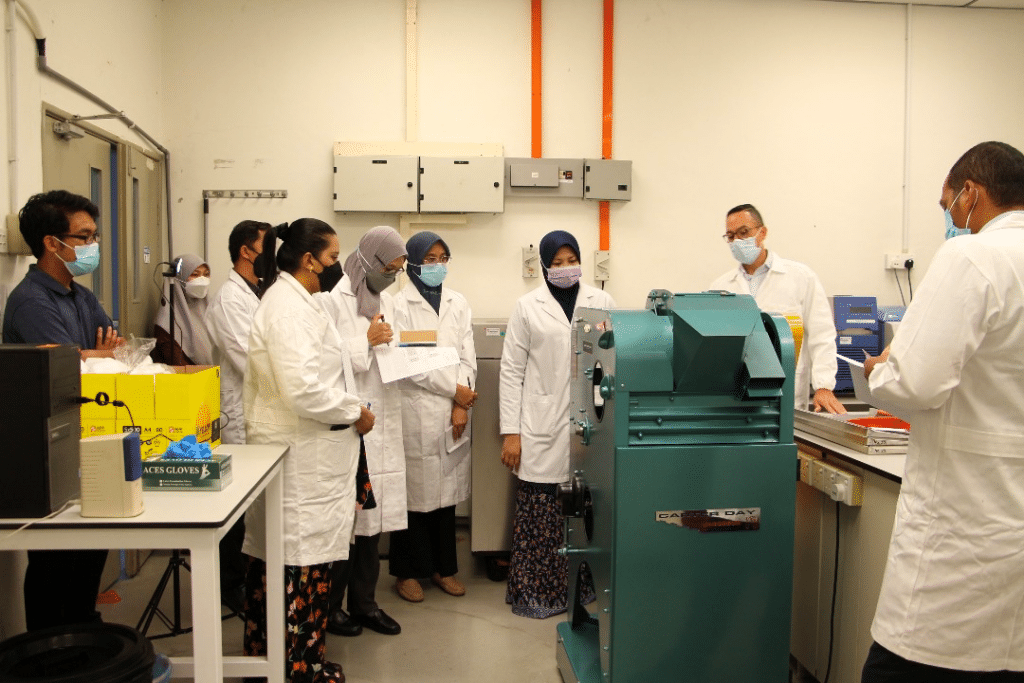As leaders in technical education in the agricultural industry, the U.S. Grains Council’s (USGC’s) Southeast Asia office recently held a corn grading training in Malaysia with the Federal Grains Inspection Service (FGIS). The event was the first in-person event to take place in Malaysia since the beginning of the COVID-19 pandemic.
The training came two years after the Council introduced the topic of grain grading to the Department of Veterinary Services (DVS) in Malaysia. At the time, DVS had been advised to purchase Carter-Day Dockage machines to properly grade corn, and since then it has purchased three machines. The Council was invited in November to lead a hands-on training of them for technicians from the Department of Agriculture (DOA), Malaysian Agricultural Research and Development Institute (MARDI) and DVS.
During the two-day program, attendees heard opening remarks from Timothy Harrison, regional agricultural attaché at the U.S. Embassy Kuala Lumpur, and DVS Director General Dato’ Dr. Norlizan Mohd Noor on the importance of corn grading standards in the development of the National Grain Corn Industry Development Program.
Additionally, the Director of the International Affairs Division at FGIS Byron E. Reilly presented on a variety of topics, including the role of FGIS at export; the importance of representative sampling; mycotoxins; the corn grading process; and types of corn damage. Caleb Wurth, USGC regional director for Southeast Asia and Oceania, and his team led the in-person training on the use of the Carter-Day Dockage machines for the technicians at the Veterinary Public Health Laboratory in Salak Tinggi.
“It has been a long time since we have been able to see our trade partners face-to-face. While the whole of Southeast Asia is still not open to international travel, it is important we begin to conduct programs where we can, as safely as we can,” Wurth said.
The Malaysian attendees expressed their gratitude to the Council and FGIS following the training as their new knowledge on the grading and sampling of corn will help them quantify local and imported corn quality, moving to clear misconceptions in the region of the performance of U.S. corn compared to that of different origins. Synchronizing systems such as grading standards are key to facilitating trade and growing domestic agricultural industries alike.
“Building strong relationships with local governments enables further cooperation in areas that are important in the work of the Council. In addition to corn grading, we plan to cooperate with our Malaysian counterparts on other national interests such as dairy production and aquaculture,” said Chuin Shern Lee, USGC regional marketing manager for Southeast Asia.
Annually, Malaysia imports nearly 4 million metric tons (MMT) of corn from various origins, mostly South American. With the growing relationship between the Council and Malaysian industry leaders following the training, the Council hopes to see more opportunity for U.S. corn and corn co-products in the future.
Read more about the Council’s programming in Southeast Asia.
About The U.S. Grains Council
The U.S. Grains Council develops export markets for U.S. barley, corn, sorghum and related products including distiller’s dried grains with solubles (DDGS) and ethanol. With full-time presence in 28 locations, the Council operates programs in more than 50 countries and the European Union. The Council believes exports are vital to global economic development and to U.S. agriculture’s profitability. Detailed information about the Council and its programs is online at www.grains.org.

